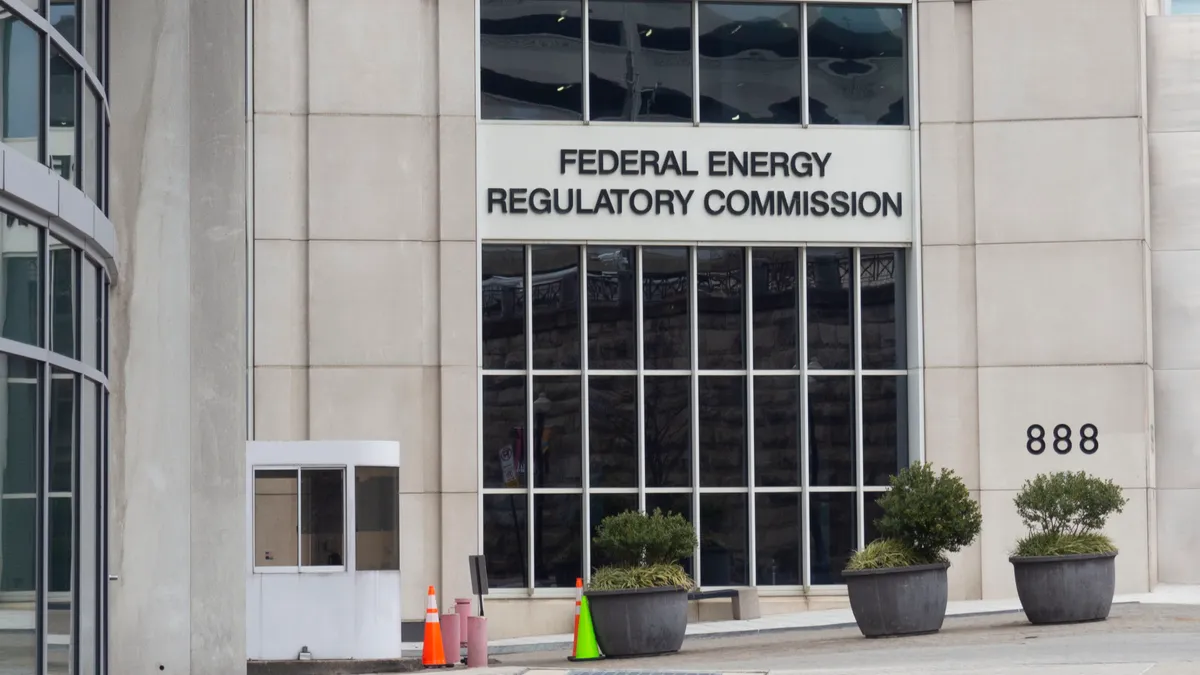Dive Brief:
-
The Federal Energy Regulatory Commission on Thursday proposed a broad “duty of candor” obligation that would require people who communicate with the agency, regional transmission organizations and other FERC-related entities to be truthful and not misleading.
-
FERC relies on receiving accurate information when it makes decisions, FERC Chairman Richard Glick told reporters Thursday after the agency’s monthly meeting.
-
Accurate information is key to FERC’s decision-making, according to Tyson Slocum, director of Public Citizen’s energy program. “FERC makes rulings based upon the evidence provided before it in the docket,” Slocum said Friday. “That puts a pretty big premium on what you write and what you claim before FERC, and anything FERC can do to ensure that those claims and those statements are truthful is going to improve the service of the public interest.”
Dive Insight:
“Introducing incorrect or inaccurate information into the commission’s decisionmaking process can lead to uneconomic, unfair, unjust, unreasonable, or even dangerous outcomes regarding many areas within the commission’s jurisdictional authority, including transmission and transportation decisions, hydroelectric licensing and operations, pipeline approval and operations, electric reliability, and enforcement actions,” FERC said in the proposal.
The proposal could have a broad effect at FERC, according to Slocum.
“If you're going to make a claim at FERC about the impact of a proposed power market reform on outcomes, if you're making a claim about confidential treatment of information, if you're making a claim about affiliation between your client company and another company, this all starts to add up,” Slocum said, noting he expects the proposal will face “significant pushback.”
Glick told reporters he has been interested in expanding duty of candor requirements since FERC in July 2019 voted down a proposal that would have required increased reporting on “connected entities” to help the agency monitor possible market manipulation.
That proposal would have also imposed a duty of candor on entities that participate in markets for virtual products, such as financial transmission rights, Glick said in a Nov. 4, 2019, letter to Sen. Maria Cantwell, D-Wash.
“The failure to finalize the commission's proposed duty of candor is especially notable because many of the commission's recent enforcement actions involved virtual transactions, which underscores the importance of ensuring that the information we receive about these transactions is accurate and truthful,” Glick told Cantwell.
Under Thursday’s proposal, all entities communicating with FERC or certain other organizations about a matter under the commission’s jurisdiction must submit accurate and factual information and not submit false or misleading information or omit material information, Gabe Sterling, a staffer in FERC’s enforcement office, said at the meeting.
Using due diligence would shield entities from violating the proposed regulation, Sterling said, noting that FERC has a patchwork set of duty of candor obligations.
The proposed duty of candor rule would cover communications with FERC, regional transmission organizations, independent system operators and their market monitors as well as with jurisdictional transmission or transportation providers, and the North American Electric Reliability Corp. and its regional entities, according to Sterling.
The integrity of the markets FERC regulates rests on the accuracy of the information market participants provide, according to FERC Commissioner Allison Clements.
“A broader duty of candor, which is not unique across regulatory agencies, will help to inspire greater confidence in energy markets and hopefully increase market participation or the opportunities for market participation,” Clements said.
The proposal seeks, among other things, comments on whether there are types of people or organizations who should be exempt from duty of candor obligations, Clements said.
“We have to ‘right size’ it,” FERC Commissioner Willie Phillips said.
FERC Commissioner James Danly voted against the proposal, saying it was overly broad and unconstitutional.
Comments on the proposal are due 60 days after it is published in the Federal Register.















